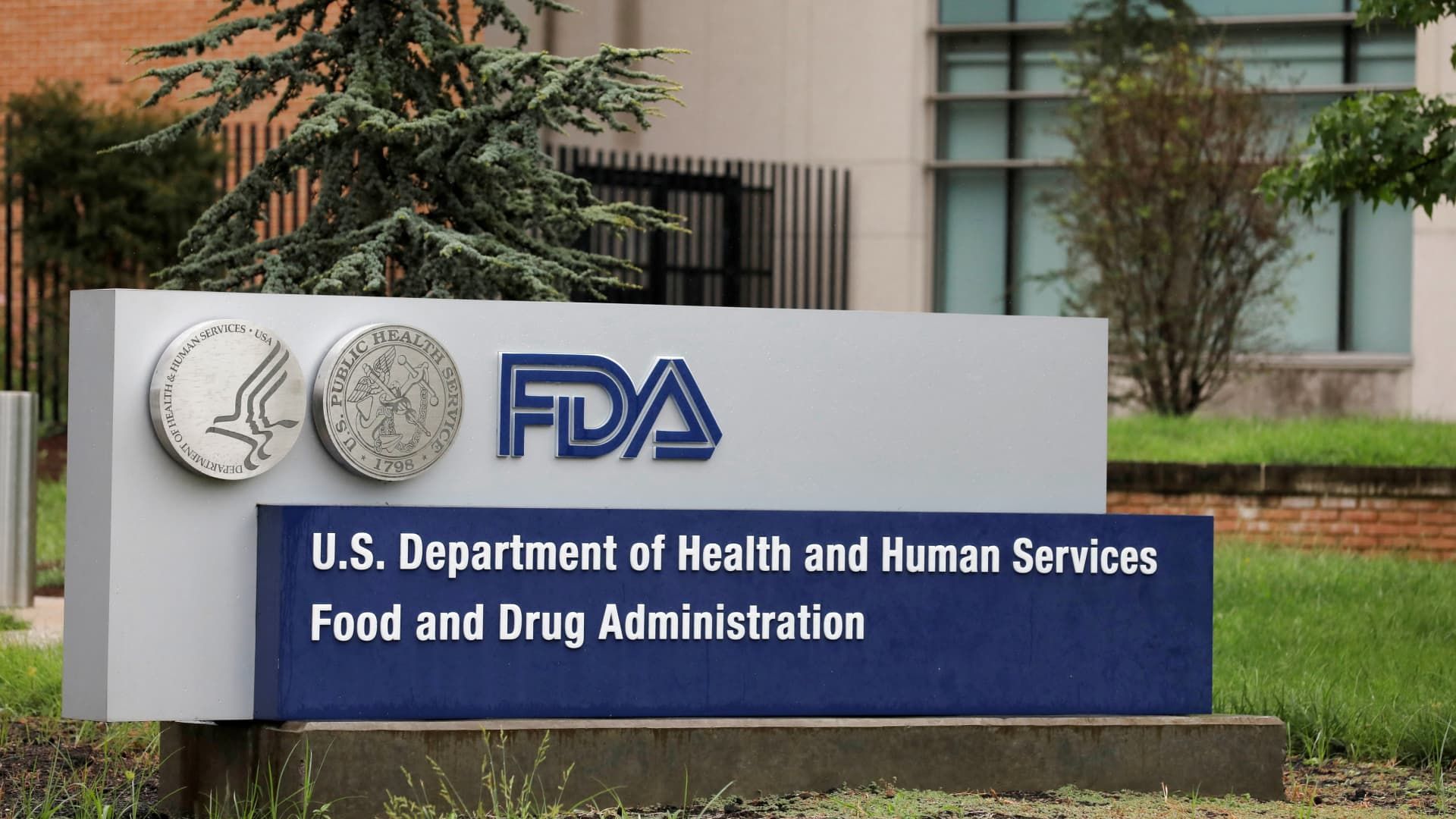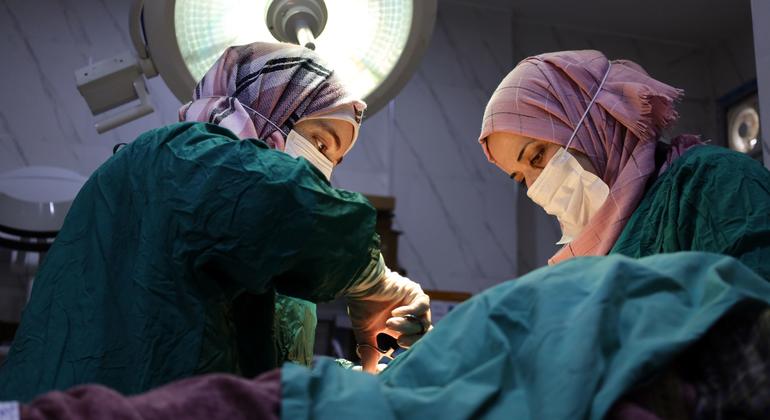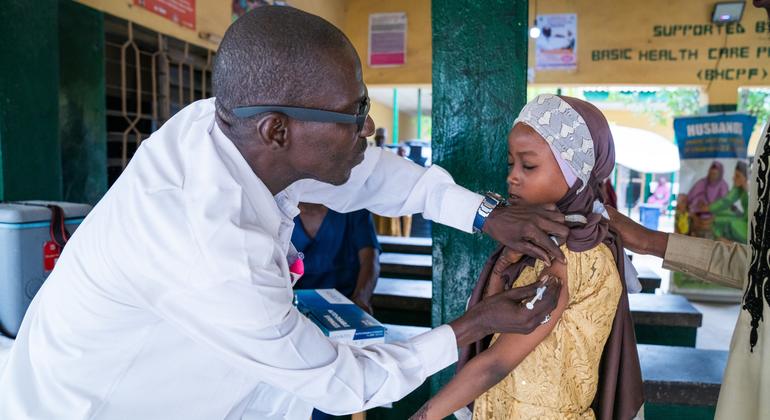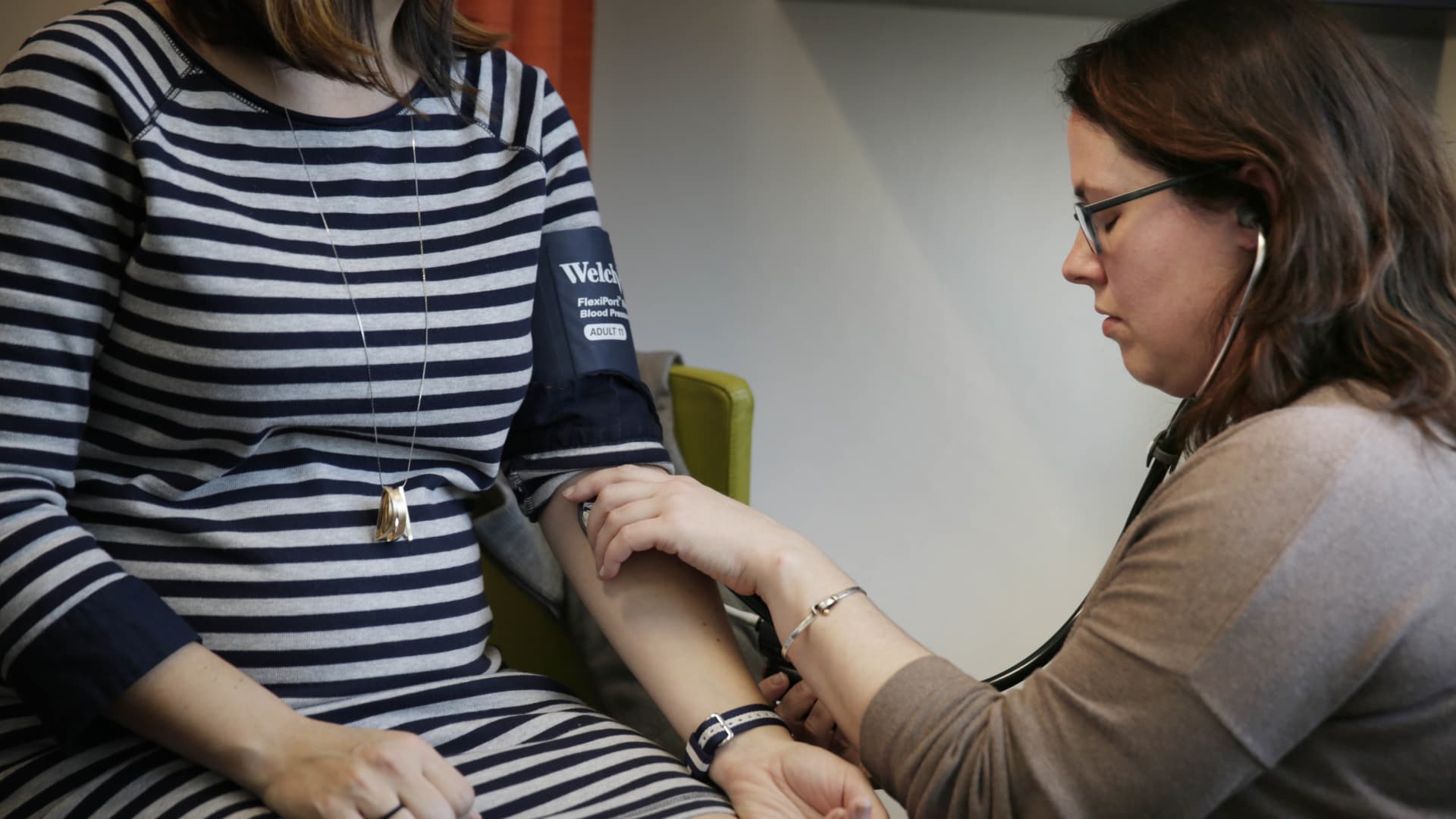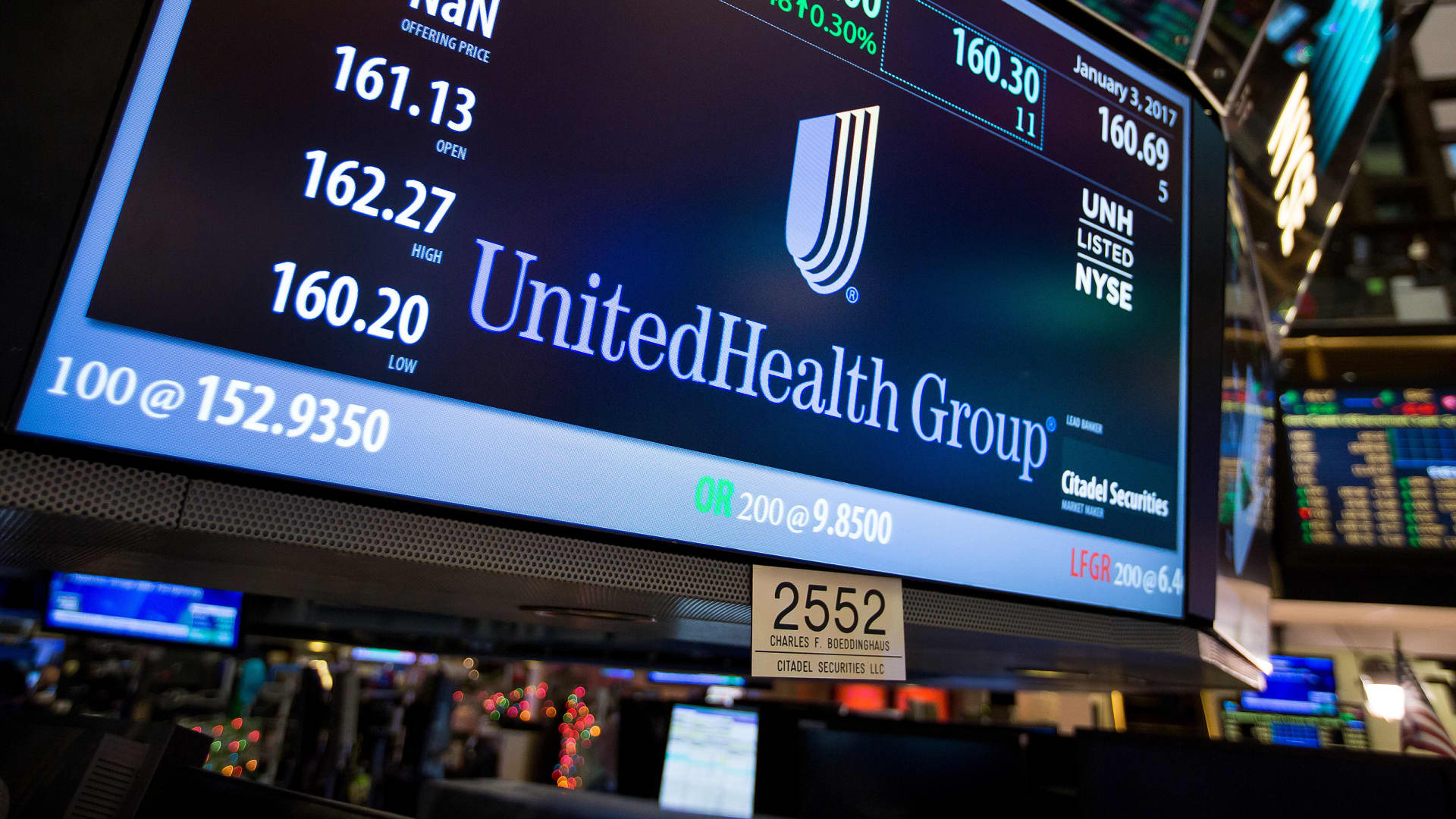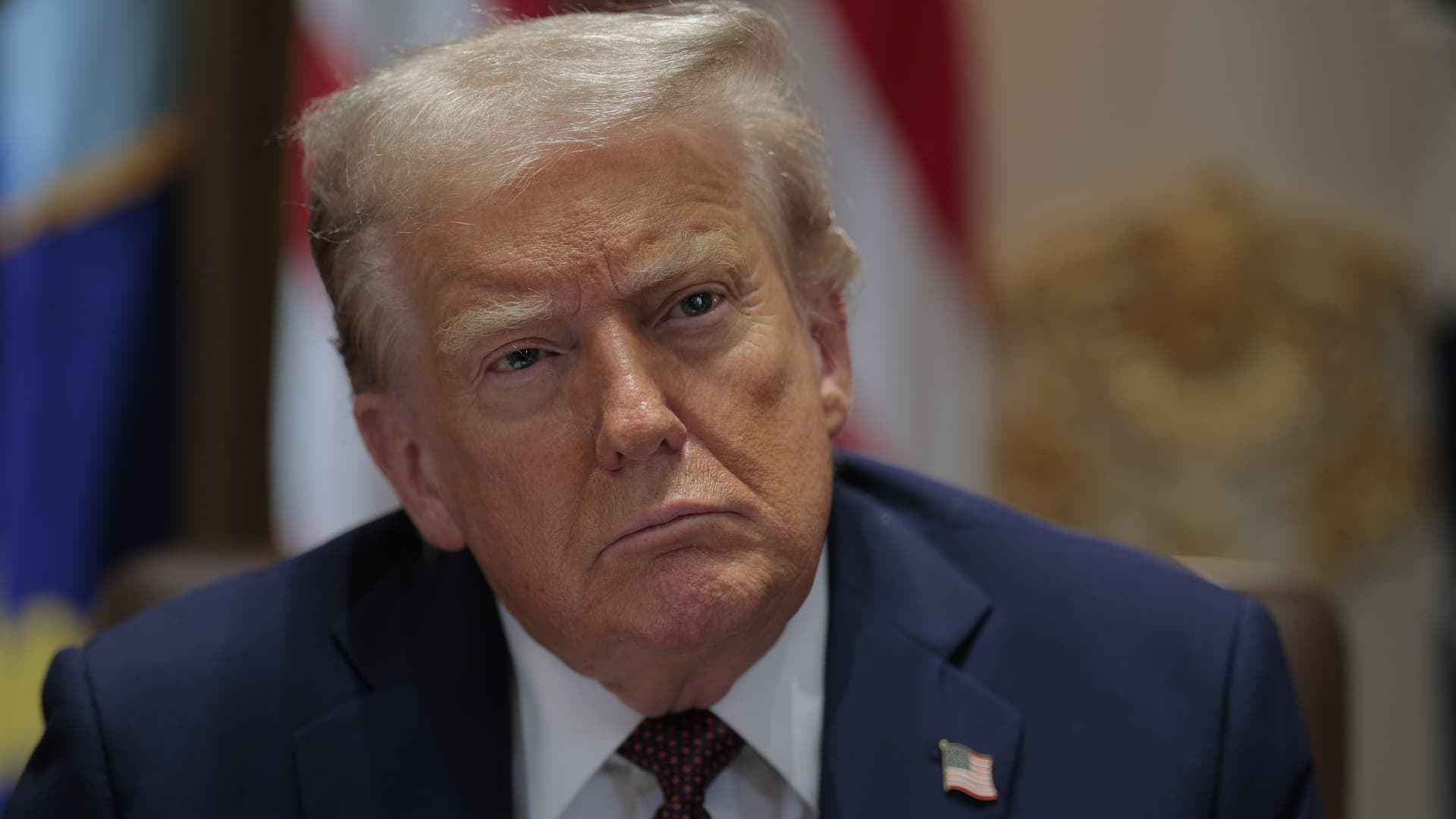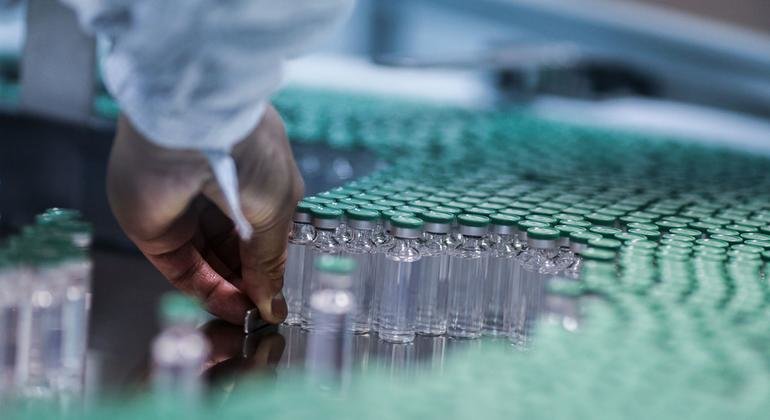Signs are seen outside the headquarters of the U.S. Food and Drug Administration in White Oak, Maryland, on August 29, 2020.
Andrew Kelly | Reuters
The U.S. Food and Drug Administration warned Tuesday that Chinese-made plastic syringes distributed in the United States have “more widespread” quality control problems than previously known.
In a safety statement, the agency said it found that three Chinese syringe manufacturers were violating FDA regulations.
CNBC has been investigating the issue since November, when the FDA initially announced it was reviewing reports of quality and performance issues with these syringes, including leaks and breakages.. After CNBC had been asking about the issue for months, the agency released an updated safety statement stating that its ongoing evaluation “has confirmed that problems with the quality of plastic syringes made in China and their distribution in the U.S. “The U.S. are more widespread than originally thought.”
In its news release, the FDA said that on March 18 it sent warning letters to three Chinese manufacturers: Jiangsu Shenli Medical Production Co. Ltd, a China-based maker of plastic syringes, as well as Medline Industries LP and Sol -Millennium Medical. Inc., two companies that market and distribute Chinese-made plastic syringes within the U.S. The letters cite violations related to the sale and distribution of unauthorized Chinese-made plastic syringes that are not cleared by the FDA for use. use in the US
In a January statement to CNBC, the agency wrote that in 2023 it received more than 4,000 reports of problems with plastic syringes, adding that this figure was not limited to just syringes made in China. The agency further wrote that there were “limitations” to this data, such as “incomplete information in reports” and “potential underreporting.”
As part of its months-long investigation, CNBC reviewed hundreds of narratives from syringe medical device reports, or MDRs, which are submissions to the FDA designed to highlight suspected problems or malfunctions associated with medical products.
In reports reviewed by CNBC, which looked at manufacturers beyond those that issued the recent warning letters, some customers and doctors say they found “foreign matter” in the syringes. Others said they had “multiple broken needles in vials when preparing vaccines,” “medications were being administered faster than they should” and that syringes were “cracked,” among other issues. In a medical device report for Jiangsu Shenli Medical Production Co. Ltd, one of the manufacturers that received a warning letter, a customer reported that the syringe was causing “inaccurate measurement of the vaccine.”
The three companies that issued warning letters did not immediately respond to CNBC's request for comment.
According to the FDA's medical device reporting database, Jiangsu Shenli Medical Production Co. Ltd. and Sol-Millennium Medical Inc. produce plastic syringes for McKesson, a major pharmaceutical manufacturer based in Irving, Texas.
In its notice, the FDA wrote that American providers, consumers, and healthcare organizations should “immediately stop using” plastic syringes manufactured by Jiangsu Caina Medical Co. Ltd and unauthorized plastic syringes manufactured by Jiangsu Shenli Medical Production Co. Ltd, unless “absolutely necessary.” Regarding all other plastic syringes made in China, the agency said they should be used as needed until transitioning to another product is possible, and urged users to monitor for defects.
McKesson did not immediately respond to a request for comment.
In addition to Jiangsu Shenli Medical Production Co. Ltd and Sol-Millennium Medical Inc., there are other China-based manufacturers producing plastic syringes for McKesson, according to FDA data. Medical device reports also link Anhui Tiankang Medical Technology Co. Ltd., Jiangsu Caina Medical Co. Ltd., Suzhou Linhwa Medical Devices Co. Ltd. and Shanghai Kindly Enterprise Development Group Co. to McKesson.
McKesson is not the only pharmaceutical giant facing problems with its syringes. Cardinal Health and Fresenius Medical Care have also had class one recalls (the most serious type of recall) of their syringes in recent months. According to the recall, size changes in Cardinal Health Monoject syringes when used with multiple pumps caused problems such as incorrect doses, delays in therapy, and pump malfunctions, including occlusion alarms and feeding delays. The FDA said Fresenius recalled its product due to reports of syringe leaks, as well as reports of unknown black material inside the syringe.
In its statement to CNBC, the FDA said it believes supply and manufacturing capacity for plastic syringes made in countries other than China, including the United States, is sufficient to meet a shortage. The agency also said it will continue to evaluate problems with syringes made in China.

